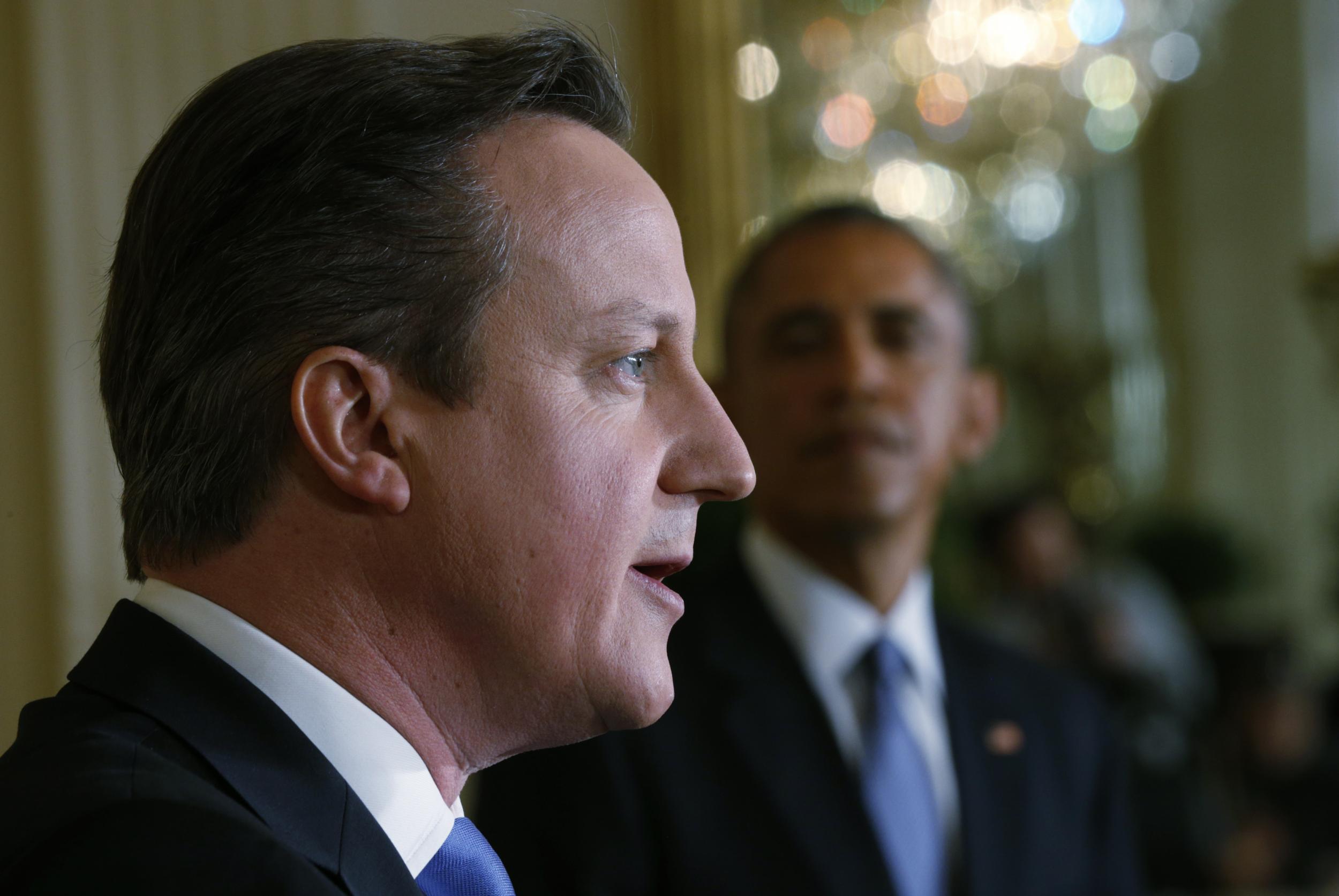Thankfully the UK's destructive 'special relationship' with the United States is finally over
Obama said he was disappointed by the “s**t show” left in Libya by David Cameron


Your support helps us to tell the story
From reproductive rights to climate change to Big Tech, The Independent is on the ground when the story is developing. Whether it's investigating the financials of Elon Musk's pro-Trump PAC or producing our latest documentary, 'The A Word', which shines a light on the American women fighting for reproductive rights, we know how important it is to parse out the facts from the messaging.
At such a critical moment in US history, we need reporters on the ground. Your donation allows us to keep sending journalists to speak to both sides of the story.
The Independent is trusted by Americans across the entire political spectrum. And unlike many other quality news outlets, we choose not to lock Americans out of our reporting and analysis with paywalls. We believe quality journalism should be available to everyone, paid for by those who can afford it.
Your support makes all the difference.There is a clear pattern about the entire thing.
Every couple of years, a British or US leader will visit the other’s country, or else make a comment, or fail to make a comment, and acres of news copy will spew forth about the state of America and Britain’s “special relationship”.
Usually the writer prattles on about how it aint’ quite like it was in the days of Churchill and Roosevelt, but concludes but it’s still pretty good, because of so-called shared values, history and language.
With clockwork timing, the issue has erupted once again because of an extended interview Barack Obama gave to The Atlantic’s Jeffrey Goldberg in which he said he was disappointed by the “s**t show” left in Libya by David Cameron and other European leaders. The criticism, headline writers gasped, was unprecedented.
The truth is the US has not considered its relationship with Britain any more special than its relationships with a host of other countries for a number of years. And in an increasingly complicated, globalised world, nor does it even make any attempt to hide this.
Despite the personal toxicity between himself and Benjamin Netanyahu, President Obama tells Israel that it has no greater ally than America. Mr Obama flies to Delhi - the capital city of a country that has long been considered at best a testy ally in Washington - and vows that the relationship between the nations will be “one of the most important” of the century.
Last November, in the aftermath of the attacks in Paris, Mr Obama reminded French President François Hollande that America was France’s oldest ally and “Nous sommes tous Francais”.
Britain, of course, refuses to accept this, despite the Americans telling it so very clearly to our faces.
And the reason for this self-delusion is clear; it has long been a strategic hope of Britain that by clinging to this notion of a special relationship it somehow justifies our claim to be a major world player, to retain a permanent seat at the Security Council, to stick our noses into events around the world, to involve ourselves in an intelligence sharing relationship that raises questions about the infringement of civil liberties and to persuade ourselves of the need to renew the Trident nuclear programme at a cost of £31bn.
Some will say that these rewards are worth it. But Britain’s pandering to the US comes at a price, most tellingly the decision taken by Tony Blair to join an invasion of Iraq based on evidence we knew to be questionable but which he decided was worth it. (One prominent article published at the time that suggested, incorrectly, of a link between Saddam and al-Qaeda was written by a certain Jeffrey Goldberg.)
The US did not require Britain’s involvement in the invasion - that was made bluntly clear by Defense Secretary Donald Rumsfeld - but we joined in any way.
The hundreds of thousands of lives, and the chaos now being wrought in Iraq now by Isis are the bloody price of that dangerous delusion.
The special relationship is dead. Long may it remain so.
Join our commenting forum
Join thought-provoking conversations, follow other Independent readers and see their replies
Comments